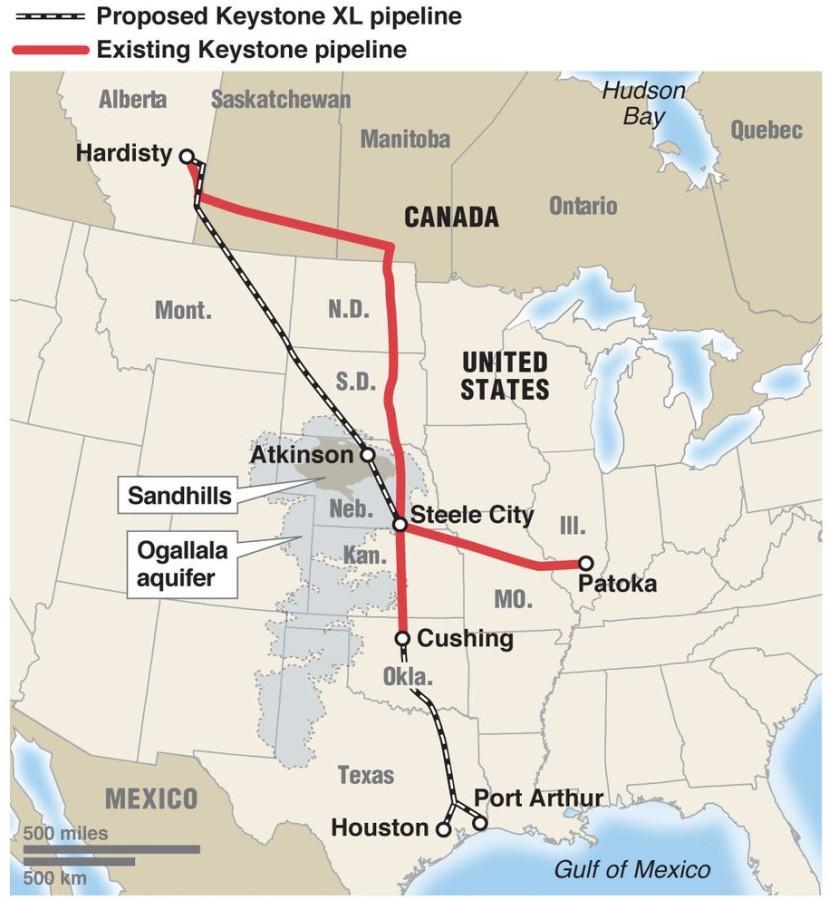Where there is oil, not far behind burns a fire of economic and environmental controversy. Over the past decade, debates have focused on our country’s incredible reliance on middle eastern countries and the need for alternative energy sources (i.e geothermal, wind, hydroelectric, etc.). However, with the consistent descent of gas prices, the problems posed by the finite supply of oil have shifted to our homeland. Very few people know that more than fifty percent of all American oil is extracted from the soil beneath our very own land of the free and home of the brave. Oil fields in residing in Texas, Oklahoma, Wyoming and Nebraska all produce the black blood that our country has become involuntarily addicted to because of our incredible thirst for industry and infinite expansion (thanks Henry Ford?).
The problems of the Keystone Pipeline lie not in the practice of oil refinement and removal, but rather in it’s transportation. With hundreds of miles of pipe stretching across vast lands of all biospheres, there are many things that can run awry and result in even the smallest of cracks, allowing the environmentally destructive substance to leak and corrupt the beautiful expansiveness of America’s bread basket.
Keystone XL oil pipeline, which could be one of the most significant pipelines in the United States’ oil industry, has aroused polarizing arguments in Nebraska, in its attempt to create a route to transfer oil between Canada, and Nebraska. The Nebraska Supreme court is voicing its decision on the legality of the issue within the coming weeks. Despite President Barack Obama having the final say on the matter, it is a international project so he will have to decide after examining the ruling Nebraska.
Strong opposition to the Pipeline comes in the form of conservationists, ranchers, and environmentalists. The citizens of Nebraska are worried by the ecological effects the pipeline could pose on their land. This is both economically, and socially threatening to many of the state’s residents. The Keystone XL Pipeline would have to run through many natives lands, and not only taint the beautiful landscapes of their state, but also diminish their livelihood as well. The possibility of environmental damage the pipeline may bring also fuels the argument of those against its production.
The Energy Regulation Committee is currently reviewing the possible environmental impacts of TransCanada’s proposed pipeline. The suggested route would cross over very active seismic-regions and there is a risk of oil seeping out of the pipes and into the earth. This would bring detrimental consequences to the land and communities in Nebraska. Life and plants will be diminished by toxic earth, which will ravage farming lands too. The economic pros likely to result from the creation of this pipeline would be astounding, inducing the controversial nature of the decision. Much is to be looked and listened to by President Barack Obama before he is to come to his decision. The battle between economists and conservationists seems a close one and only time will tell the victor of the multi-faceted struggle.


